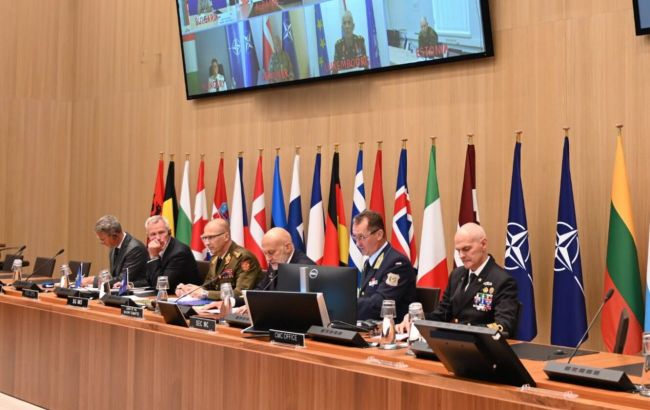NATO military chief confirms continued support for Ukraine
 NATO held a meeting on Ukraine (Photo: x.com/CMC\_NATO)
NATO held a meeting on Ukraine (Photo: x.com/CMC\_NATO)
During a video conference, military leaders of NATO member countries reaffirmed their support for Ukraine, according to NATO Military Committee Chairman Giuseppe Cavo Dragone.
“Priority continues to be a just, credible and durable peace. Our thoughts remain with the Ukraine brave brothers and sisters in arms,” he said.
He described the meeting itself as an excellent, candid discussion among the chiefs of staff of NATO member countries.
Great, candid discussion among #NATO Chiefs of Defence, today.
— Admiral Giuseppe CAVO DRAGONE - NATO CMC (@CMC_NATO) August 20, 2025
And excellent update on the security environment from our new SACEUR, his first with us.
I thanked everyone for their always proactive participation in these meetings: we are united, and that unity was truly… pic.twitter.com/O0UvCFyBPO
He also highlighted the excellent update on the security situation from the new Supreme Allied Commander Europe (SACEUR) Alexis Grinkevich, who participated in this format for the first time.
As reported by RBC-Ukraine, after a meeting at the White House between European officials and US President Donald Trump, about 10 countries expressed their willingness to send troops to Ukraine.
Negotiations on deploying troops to Ukraine will involve NATO’s Supreme Allied Commander in Europe and the defense ministers of the Alliance’s member states.
Several European countries have already declined to send their soldiers to Ukraine.
Polish Defense Minister Władysław Kosiniak-Kamysz noted that the country’s key tasks include protecting NATO’s eastern flank and securing the Polish-Belarusian border, where 5,000–6,000 servicemen are constantly maintaining security, as well as providing infrastructure and logistics for a potential peacekeeping mission.
Greek government spokesperson Pavlos Marinakis also stated that the country will help in such an effort, but not with troops.
Latvian President Edgars Rinkēvičs said that it is premature to discuss sending troops to Ukraine. According to him, a peace agreement must first be concluded, with clarity on its main elements, the security guarantees, and the role of European countries.

